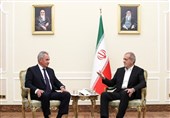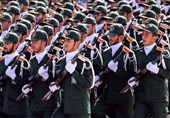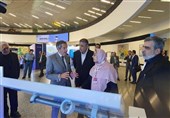Iran’s Envoy Blames Underdevelopment on Support for Terrorism
TEHRAN (Tasnim) – Deputy head of Iran’s diplomatic mission to the UN described the armed conflicts in the world as well as the financial and military supports for the terrorist groups as the major factors behind destabilization and failure to achieve the social development goals in the world.
Addressing the 54th Session of the Commission on Social Development, held at the UN headquarters in New York on Monday, the Iranian Ambassador and Deputy Permanent Representative to the United Nations Gholamhossein Dehqani called for a cut to the supports for terrorist groups in order to bring about social development in the targeted countries.
The session was titled ‘rethinking and strengthening social development in the contemporary world.’
The full text of his speech is as follows:
In the name of God, the Compassionate, the Merciful
Mr. Chairman,
At the outset, I would like to congratulate you and other members of the Bureau for your election and wish you success in leading this Session of the Commission. I also thank Secretary General for presenting his Report under this agenda item (E/CN.5/2016/3). My delegation aligns itself with the statement made by Thailand on behalf of G77 and China.
Mr. Chairman,
The progress towards fulfilling the Copenhagen commitments continues to be uneven. Hence, building on lessons learned from the implementation of the World Summit for Social Development as well as the MDGs, it is high time to ensure that the three components of social development, namely poverty eradication, full and productive employment, and social integration are fully integrated into the post-2015 sustainable development agenda and the SDGs.
The recognition by the world leaders that eradicating poverty is the greatest global challenge and an indispensable requirement for sustainable development is expressive enough. It is also encouraging to note that 9 out of 17 SDGs have strong relevance to social development. However, let's remember that a divided world in which only 62 people own as much wealth as the poorest half of the entire world population while the richest %1 own more than the other %99 is definitely not a desirable world. Addressing inequality, among and within countries as outlined in SDG 10, is therefore absolutely essential in bridging this alarming gap.
In rethinking social development within such context, the importance of a conducive external environment cannot be overemphasized. In the absence of scaled-up international support including through enhanced and real transfer of technology and supportive global trade, monetary and financial systems, social development for many countries continues to remain out of reach.
Mr. Chairman,
Undoubtedly, conflicts have the most destructive impact on the social achievements of affected countries. Conflicts and the ensuing destabilization of governments as the main sponsors of and actors in the social development field, leave consequences beyond imagination on the social development gains of the countries. Supporting, financing and arming terrorist groups and sending them to countries that are targeted for destabilization is becoming a new additional menace with inconceivable ramifications on social development of targeted countries and beyond.
The vision of A World Against Violent Extremism or WAVE, which was first proposed by Iran's President and later got the endorsement of the UN General Assembly identifies poverty and underdevelopment as breeding grounds for violent extremism and terrorism. As theses perils in turn and in a downward vicious circle exacerbate poverty and social exclusion, the WAVE initiative recognizes that combating poverty, unemployment and inequality has dividends far beyond economic gains.
Mr. Chairman,
Based on such intuition, and despite imposition of indiscriminate and cruel sanctions as well as illegal unilateral sanctions, the Islamic Republic of Iran has attached the greatest importance to ensuring social development of its citizens. This is evident in the constant improvement of the country's Human Development Index during last four decades.
I would like to mention that Iran has undertaken with satisfactory outcomes a multifaceted approach on poverty eradication which addresses among others poor health - through adoption of a universal health coverage approach; poor nutrition- through implementation of a food security scheme, and poor education - through offering incentives to out of school children. In conclusion, we are determined in pursuing nationally appropriate poverty eradication and welfare policies and strategies and their effective implementation with participation of all relevant stakeholders to ensuring equality and social development for all.
Thank you Mr. Chairman.






